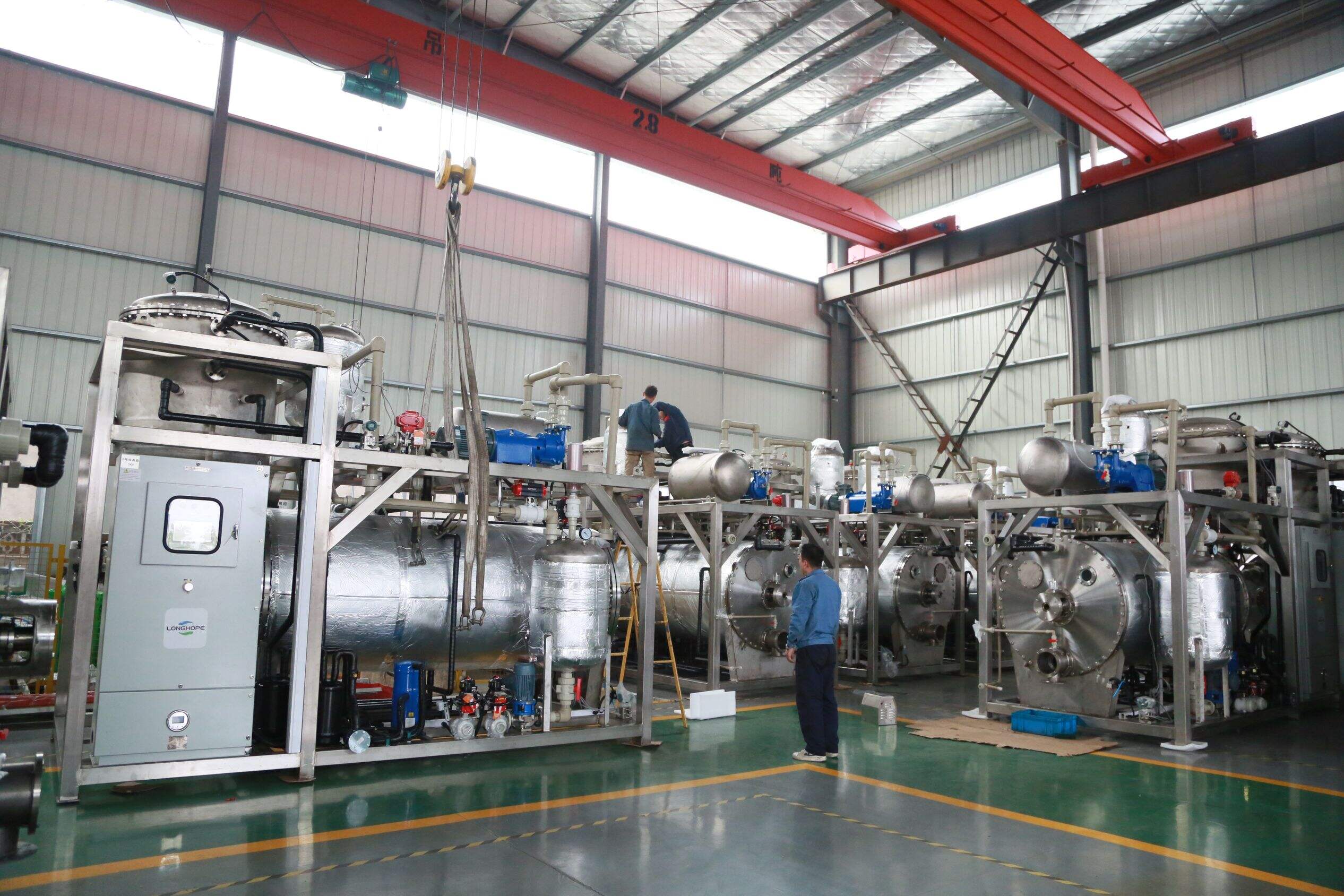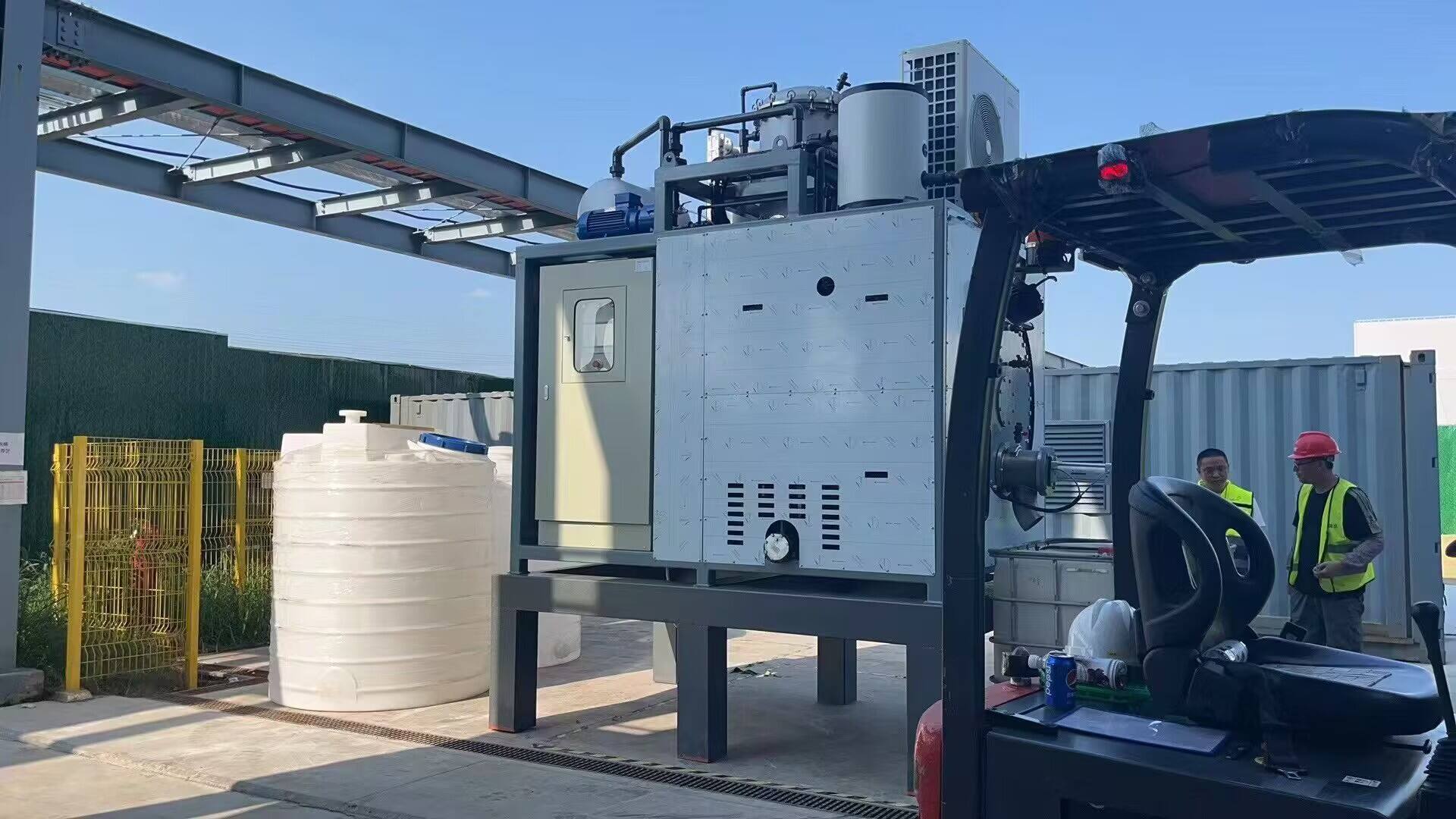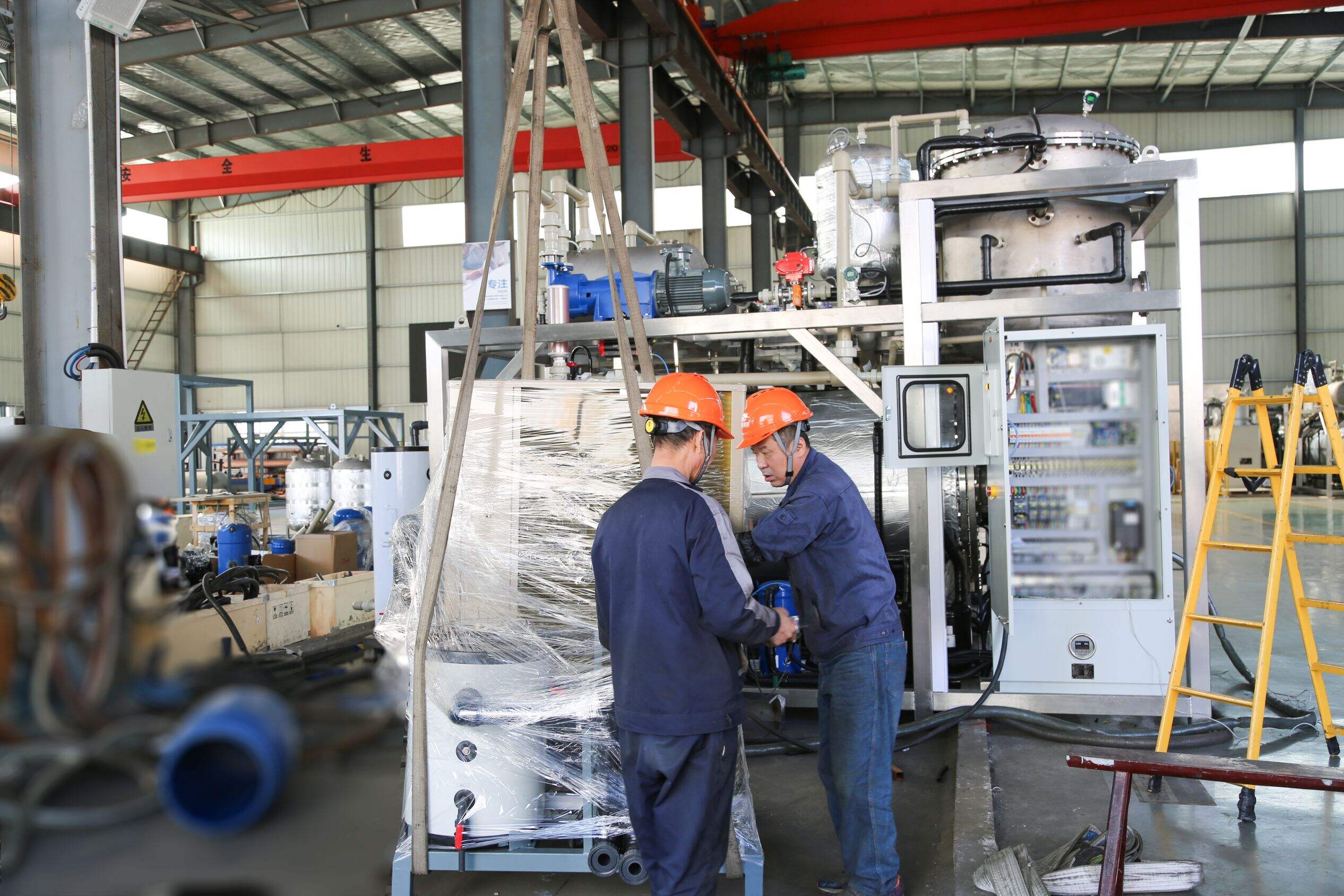vacuum evaporation and distillation
Vacuum evaporation and distillation represents a sophisticated separation process that operates by reducing pressure below atmospheric levels to lower the boiling point of liquids. This advanced technique combines the principles of vacuum technology and thermal separation to achieve highly efficient separation of mixtures. The process involves creating a vacuum environment where volatile components can be separated at lower temperatures than conventional atmospheric distillation, making it particularly valuable for heat-sensitive materials. The technology employs specialized equipment including vacuum pumps, condensers, and heat exchangers working in concert to maintain precise control over pressure and temperature parameters. Key applications span across pharmaceutical manufacturing, where gentle separation of active ingredients is crucial, food processing for concentration of heat-sensitive products, and chemical industries for purification of specialized compounds. The system's ability to operate at reduced temperatures while maintaining separation efficiency has made it indispensable in modern industrial processes. This technology proves especially valuable when dealing with thermally unstable compounds or when energy efficiency is a priority. The process can be configured for continuous or batch operations, offering flexibility to meet various production requirements while maintaining product quality and process efficiency.


